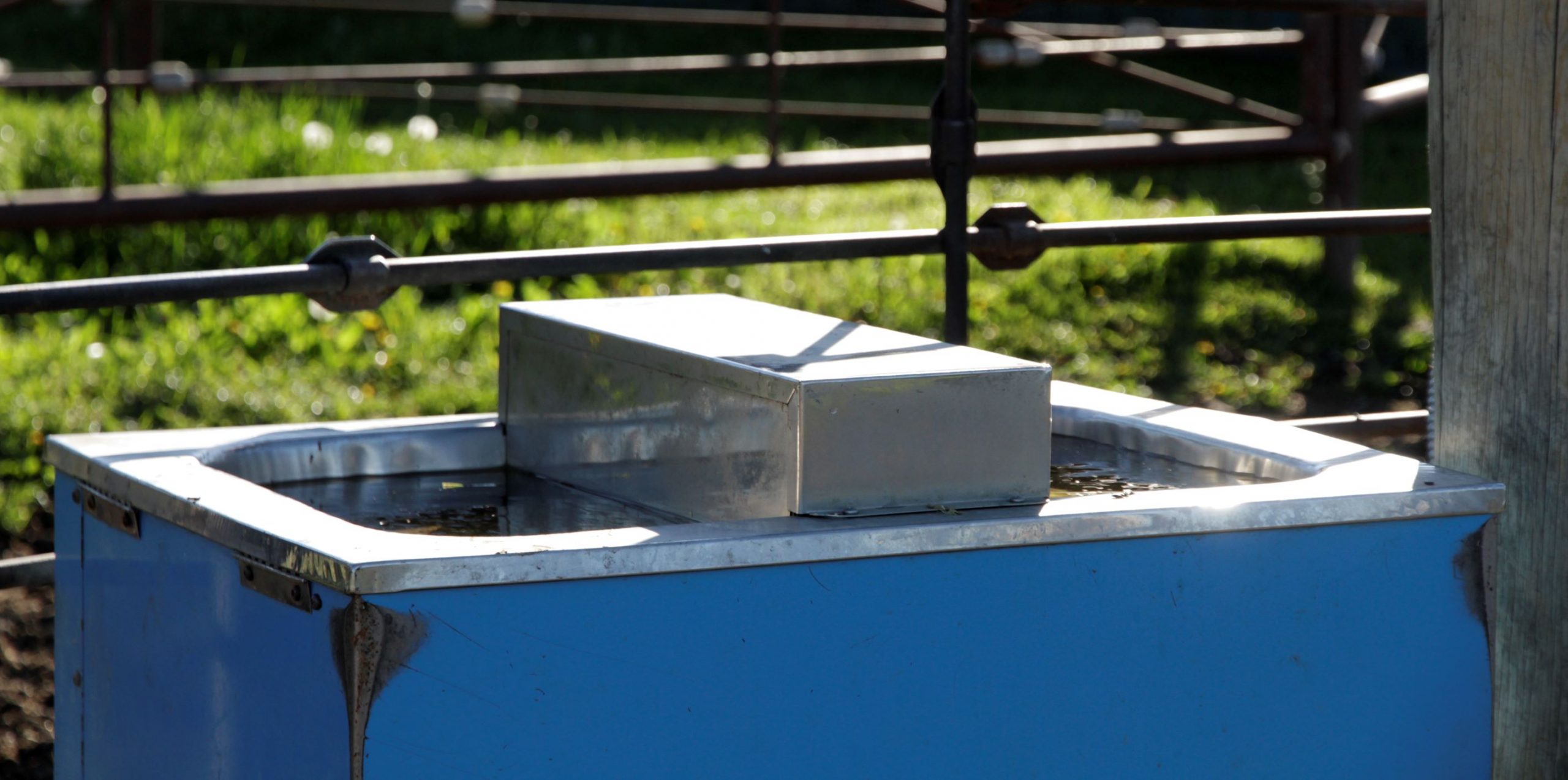AB Direct - Steers
Rail: 505.00-508.00 del (bids/sales)
AB Direct - Heifers
Rail: 505.00-508.00 del (bids/sales)
US Trade- Steers
Rail: ---
US Trade - Heifers
Rail: ---
Canadian Dollar
0.03

What We’re Reading | For water, it’s quality and quantity
Test stock water and reduce worry
By Beef Cattle Research Council
When stock water appears abundant and water quality has been consistent in previous years, it’s easy to focus on other things — but don’t overlook water testing.
Poor-quality stock water can lead to reproductive inefficiency, poor gains, disease and in extreme circumstances, death. Even when water supplies appear abundant, stock water may contain high levels of sodium, sulphates or other compounds that lead to toxicity.
Water quality can be especially variable in surface water sources — such as dugouts, ponds or dams — and weather doesn’t necessarily need to be hot and dry to warrant regular testing. Precipitation levels in the previous years, groundwater recharge, runoff conditions, evaporation levels and adjacent land use can all impact water quality in both the short- and long term.
It’s also important to monitor well water conditions. Quality in well water can change quickly, even if wells have had suitable water in the past.
Poor water quality linked to sulfate levels
By Robert Arnason, Western Producer
This summer, testing water might become a necessity for livestock producers.
Hundreds of dugouts across the eastern Prairies are half-full of water, or nearly empty, because of minimal snowfall this winter.
When dugouts and other water sources are low, water quality usually drops.
“If they (producers) are looking at lower levels… that can sneak up on someone,” said Jenay Werle, livestock and feed specialist with Saskatchewan’s ministry of agriculture in Yorkton.
Know how much water your cattle need
With drought and hot summer days coming, follow tips to meet various needs of your herd.
By SDSU Extension, in Beef Magazine
With hot summer days coming, water needs must be met for animals. Water is required for regulating body temperature, digestion, absorption of nutrients, waste removal, fetal growth and lactation. All the grass in world means nothing without water.
The amount of water a cow requires daily varies depending on environmental temperature, lactation status, weight, etc. During summer with temperatures about 90 degrees F, data suggests a lactating cow needs 2 gallons of water per 100 pounds of body weight. Using this rule, a spring calving cow weighing 1,300 pounds would require about 26 gallons of water, plus another 5 to 10 gallons for the calf.
‘What We’re Reading’ is a quick look at some of the issues and insights Alberta Beef Producers’ content creators and editors are reading to stay up-to-date, to broaden perspectives, and to explore issues relevant to the agriculture industry.



